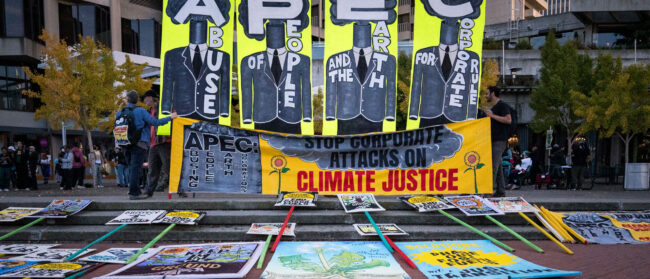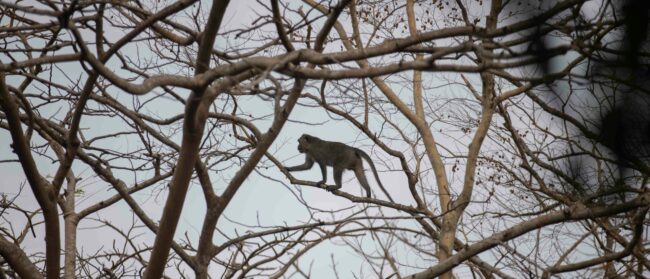Last week, Vietnamese prime minister Nguyen Xuan Phuc issued what has been widely heralded as a much-needed ban on the wildlife trade in the country.
Some rules rehash old ground, while others seem to represent genuine progress. The 12-point document, issued on 23 July, covers areas from the complete ban on pharmaceuticals manufactured using wild animals (rule six), to a prohibition on the use of “telecommunications networks and the internet” for advertising the sale of wild animals (rule nine).
Some, however, are saying that the directive isn’t a ban at all.
“The language of the directive is very vague. Some people are saying that this is a ban, but the way I’m reading it and the way Traffic is reading it is not that at all,” said Sarah Ferguson, director of Hanoi-based anti-wildlife trafficking NGO Traffic.
Others, including Thai Nguyen Van, director of Save Vietnam’s Wildlife, say actually enforcing the directive is the biggest hurdle. “The problem is getting the ministries and local governments to enforce the directive. There have been other, similar directives,” he said.
Here, the Globe breaks down what is new about the directive, why some people are calling it a ban, why others aren’t, and why there is still good news to be found in this vague decree.
The wildlife trade is a billion-dollar industry in Vietnam, so when the prime minister called for a draft ban in March as the Covid-19 pandemic began to take hold, mirroring a similar ban implemented in China in February, it was seen as an overwhelmingly positive step forward.
But news turned sour as it became clear that, as the country excelled in battling back the pandemic and its community transmission dropped to zero by late-April, it lost impetus in following through with the ban.
This may explain some of the stories that cropped up so quickly last week, following the announcement, claiming that a ban will be enforced on wildlife trade and wildlife markets. “I read [an article] that came out almost immediately that said wildlife markets are banned and wildlife trade is banned and I think people have clung onto that,” said Ferguson. “But that isn’t what’s happened.”
An English translation of the directive obtained by the Globe shows less of a ban, and more of a reinforcement of previous policies, though perhaps with a little more spice.
The first rule is perhaps the most crucial, as it makes importing wildlife into Vietnam temporarily illegal. It states: “Stop importing living or dead wild animals, eggs, larvae, parts and derivatives of wild animals … until there is further direction from the Prime Minister or there is permission by the Prime Minister in special circumstances.”
Crucially, however, it does little to address the thriving domestic market for wildlife. “It’s not banning anything other than a temporary moratorium on imports – so it’s not really banning anything,” Ferguson said.
There is also a focus on one significant word: consumption. Specifically, the latest directive calls for, “All citizens, especially cadres, civil servants, officials and their relatives shall not participate in illegal hunting, catching, buying, selling, transporting, slaughtering, consuming, storing and advertising wild animals.” Crucially, this is the first time the word consume has made it into a Vietnamese law on wildlife trafficking.
For a long time, Vietnam’s wildlife trade policies have held back on criminalising consumers of wildlife products, making it illegal to partake at other stages of the wildlife trade, just not the final act – consumption. As Save Vietnam’s Wildlife’s Thai Nguyen Van points out, people from every walk of life consume wildlife, “from the city to the forest, to government officials”.
“One of the biggest problems of wildlife conservation is consumption, and we sincerely hope that the Vietnamese government and the ministries actually act more,” he said.
So far it’s just one word among many, accompanied by no real explanation or punishment. But regardless, Thai said, “we’re happy to see the word consumption being put in there”.
The fact is, there was a penal code that came out that was amended in early 2018 to include really harsh penalties … but we’re still waiting for real enforcement
There are many other issues that the directive puts into question as well, like captive breeding practices, illegal hunting, and snaring, with Ferguson saying the new directive was “much more all-encompassing than I’d expected it to be”.
The directive reinforced already-existing laws in old penal codes, specifically, one that was updated in early 2018. While that may sound underwhelming, the initial penal code itself already carries some of the harshest penalties for wildlife trade in the region, with prison sentences of up to 15 years, or fines of up to $660,000.
However she cautioned that the kind of optimism seen around this most-recent directive had been seen previously with the 2018 law. “The fact is, there was a penal code that came out that was amended in early 2018 to include really harsh penalties, and everyone said that it was wonderful … but we’re still waiting for real enforcement.”
While the 2018 law hasn’t been successful to date due to a range of challenges – ranging from inadequate preparation and presentation of evidence and legal loopholes – it is hoped, if with some trepidation, that this new directive will change that, encouraging its proper enforcement throughout the country.
The prevention of future pandemics has been heavily cited within this latest directive. Coincidentally, its release coincided with Vietnam’s first new community transmitted cases of Covid-19 in 99 days, as a second-wave could now be imminent.
But whether it’s for pandemic prevention, extinction prevention, or the improvement of biodiversity, and whether it’s a ban, a rehashing of old policies, or the inclusion of the never-before-uttered word ‘consume’, everyone can agree that it is, in some way, a step-forward for wildlife in Vietnam.
“It’s not like it’s going to be some silver bullet that is going to magically improve biodiversity,” Ferguson explained. “I’ve been here for four years so I’ve learned to see baby steps as a huge leap forward. These are baby steps, but baby steps in the right direction. That’s more than you see sometimes, so that’s good.”


